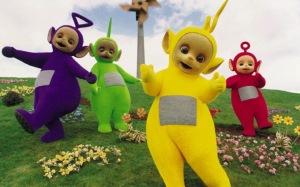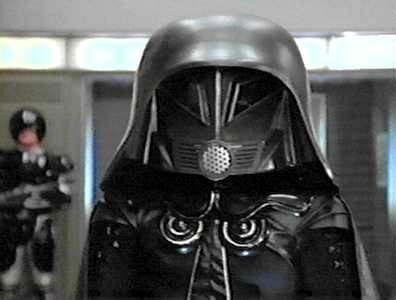I want to be upfront about something. The post, “It’s a Curious Bit of Culture,” from the inception of the idea, worried me. When I conceived the first sentence all the way up until when Laura, my wonderful wife and editor, read it. I knew that I was self-editing in the extreme. What’s wrong with self-editing? I left a lot of myself on the cutting room floor out of fear of what my audience might think.
This is possibly the first time that I thought self-editing was a bad thing. I was surprised by the number of readers, friends and people I didn’t even know who were reading my blog who responded either directly or via comments on Facebook. The comments and reactions were enlightening. I am very new to this, making an effort to put myself and my writing out there for the world to see. It’s hard not to be afraid of the reactions that I’ll receive. It’s not unlike stage-fright and as a writer; you tend to hold back at first.
This Tuesday, I had the good fortune to hear a young woman, Olivia Rusk, speak about her challenges growing up with a disorder that causes her to lose her hair. Olivia is a teenager that speaks against bullying and talks about being who you are, instead of worrying about what other people think. I thought, if this teenager can do it, why am I afraid of being myself?
If you haven’t yet read, “It’s a Curious Bit of Culture,” please do so now. And without further preamble, the author’s reaction to his fear and what the post should have expressed.
Let’s start at the words “Why is that?” and move forward.
How else do we know how well we’re doing, if we don’t have a yardstick by which to measure? We do have a way to measure ourselves. We all do. It’s built in equipment standard on every human model, with the exception of sociopaths and other mentally ill fragments of society. We refer to it as a conscience, Super Ego, Karma, or simply the knowledge of good and evil.
The problem with the word “evil” is that people tend to argue semantics. What is “evil?” When people think of evil, they think Nazis, they think Osama Bin Laden, and in other countries they think Americans. I personally think of Teletubbies.

Merriam – Webster Dictionary Online defines evil as the following:
1) Evil
- Morally reprehensible: sinful, wicked
- Arising from actual or imputed bad character or conduct
2) Evil
- Archaic: Inferior
- Causing discomfort or repulsion
- Disagreeable
3) Evil
- Causing harm
- Marked by misfortune
We, in this society, as a general rule tend to associate the word evil with the very first definition “morally reprehensible.” If you can muster the courage and strength to accept that beyond the accepted definition the word actually means much, much more.
“…while the truncheon may be used in lieu of conversation, words will always retain their power. Words offer the means to meaning and for those who will listen, the enunciation of truth. And the truth is, there is something terribly wrong with this country, isn’t there?” ~V, V for Vendetta
That’s the point isn’t it? A word can, by itself, inspire extremely strong emotions. They don’t necessarily have to be strongly negative either, such as the many colorful and clearly intellectual words used to describe someone of another race, they simply need to evoke emotion.
What if I were to tell you that you’ve done something evil? The blank look on your face most likely represents your social conditioning to the aforementioned accepted definition of evil. I’m not saying you’re satanic, that you have any interest in the genocide of an entire creed of people, that you’re a terrorist or that you’ve tortured me with children’s television programs. No. However, you have caused harm, discomfort or been disagreeable at some point. We’ve all done it.
We are both culturally and evolutionarily programmed to be self-centered and yet, interestingly enough, despite this fact we rarely make an effort to measure ourselves with the slightest regard to how we affect others. We measure our rank in society. We measure our reach on social media. We measure how many friends and followers we have on Facebook and Twitter. How about measuring the good you have personally done in this world against the bad? That’s right; I’m telling you that life is not a zero-sum game. A zero-sum game, if you are unfamiliar, is the idea that if you add the losses and gains of two opponents then the resulting number is zero.
“The more complex societies get and the more complex the networks of interdependence within and beyond community and national borders get, the more people are forced in their own interests to find non-zero-sum solutions. That is, win–win solutions instead of win–lose solutions…. Because we find as our interdependence increases that, on the whole, we do better when other people do better as well — so we have to find ways that we can all win, we have to accommodate each other….” ~ Bill Clinton
You can’t win a game when the rules aren’t set. There are far too many variables controlled externally from yourself. You don’t “win” at life, unless you’re talking about Milton-Bradley’s Game of Life. Although, I think winning at that game leaves you feeling almost as hollow as actually attempting to win at real life. The Milton-Bradley’s Game of Life was initially created in 1860. It wasn’t until 1991 that they added “rewards” for doing good things in “Life” such as recycling, helping the homeless, etc. I think that says something about the goals of people. A game designed around “winning” at life is scored by getting married, having kids, doing what everyone expects of you and ultimately retiring to either “Millionaire Acres” or “The Poor Farm.” That’s right. The 1960s version of the game says you lose unless you’re a millionaire.
That’s utter crap, by the way. You don’t need to measure bank accounts, progress, jobs, clothing or any of the useless “fruits of our labor.” We need to measure the good we do. What needs to occur is balancing of the karma checkbook, and let’s be honest, many of us have balances that are unjustifiably in the red. Pay attention, today, of all days, while this is fresh in your mind. Be honest with yourself, write down every act of “good” and every act of “evil.”
How would you measure up? Keep a journal of your actions that impact others. I’ll do it with you. I admit I’m an asshole. The best of my friends will tell you that being friends with me is like trying to cuddle a porcupine. I could be better. I’ll even get you started with a few lines from today’s journal.
1. Carefully challenged a person’s belief on Facebook (Good)
The reason this classifies as good is because instead of telling the person they were inferior or just bashing their belief system. I presented my point in a relevant and hopefully meaningful way. You could argue that it’s evil to argue with someone, but I believe discourse done respectfully is always a good thing.
2. I wrote this post (Good)
I feel no ill-will towards anyone with the creation of this post. It is my observation and for that I expect to be challenged, respectfully. This post is meant to hopefully inspire people to take a look inward and to measure within instead of without. How can that be a bad thing?
3. I argued with my wife (Evil)
As many of the married people in the audience can tell you it doesn’t matter how you fight, it’s usually a bad thing. There is nothing worse than watching the person you love cry, whether or not you’re in the right. Laura and I have a great relationship. We don’t often fight, but when we do it’s rarely handled well. We all have areas of opportunity, this is one of mine.
That’s all you get, this is about all of us. Not just me.
Do it for one day. Do it longer if you’re brave enough. But above all, be honest with yourself.
Watch those things you do without really thinking. Do you drive aggressively? Do you carry a bit of a chip on your shoulder? Do you participate in passive racism, classism, etc? Do you act as if you are better than others? Do you complain about your co-workers (even if they deserve it or make your life difficult)? Do you treat any particular people badly? Do your self-centered behaviors impact others negatively? I’d love to see the results of anyone’s journal. Please send in any that you feel comfortable sharing.
For each item in your journal, as I did, note Good or Evil. There isn’t a gray area. You know which category something fits into. Now count them, how does it measure out if you were completely honest? This might be tough for some of us, it’s hard to see some of the things we take for granted that are negative to those in our wake. That’s also not to say that one good = one bad. To be clear, I’m not saying help an old lady across the street and then push her in front of a bus and you’ll even things out. You’ll know what items really weigh more than others. How are you to know if you’re not used to looking at yourself with a microscope?
One of the things I’ve come to enjoy about the organization that I currently work for is their adoption of a code known as “The Four-Way Test.”
- Is it the Truth?
- Is it fair to all concerned?
- Will it build goodwill and better friendships?
- Will it be beneficial to all concerned?
I’m still not here to tell you what the “right thing” is. What I can tell you is that our observable culture is driving us to madness in the pursuit of money, fame, fortune and having a bigger and better pile of useless trinkets than the next person.
Despite what some people may tell you it doesn’t matter how hard you work. You will not pull off a so-called success story where you rise from the depths of poverty to be the owner of some ridiculously profitable empire. If we were paid by the amount of hard work we do, this country’s factory workers, retail, service and custodial workers would be the billionaires.
You may not be able to afford to throw money at a problem. You may not be able to save everyone. You may not be able to feed your own family from week to week. You are still very much in charge of the amount of good you do in this world. Keep track, that’s what they always tell you right? Winners keep score. I firmly believe that if you are honest with yourself, you’ll find that you’ve got some work to do. I know you can think of some good to do in this world, even if it’s only for your family, to console a friend, to a give a hug when one is needed, whatever the case may be.
Do it today.
~Don Sedberry, unleashed.

